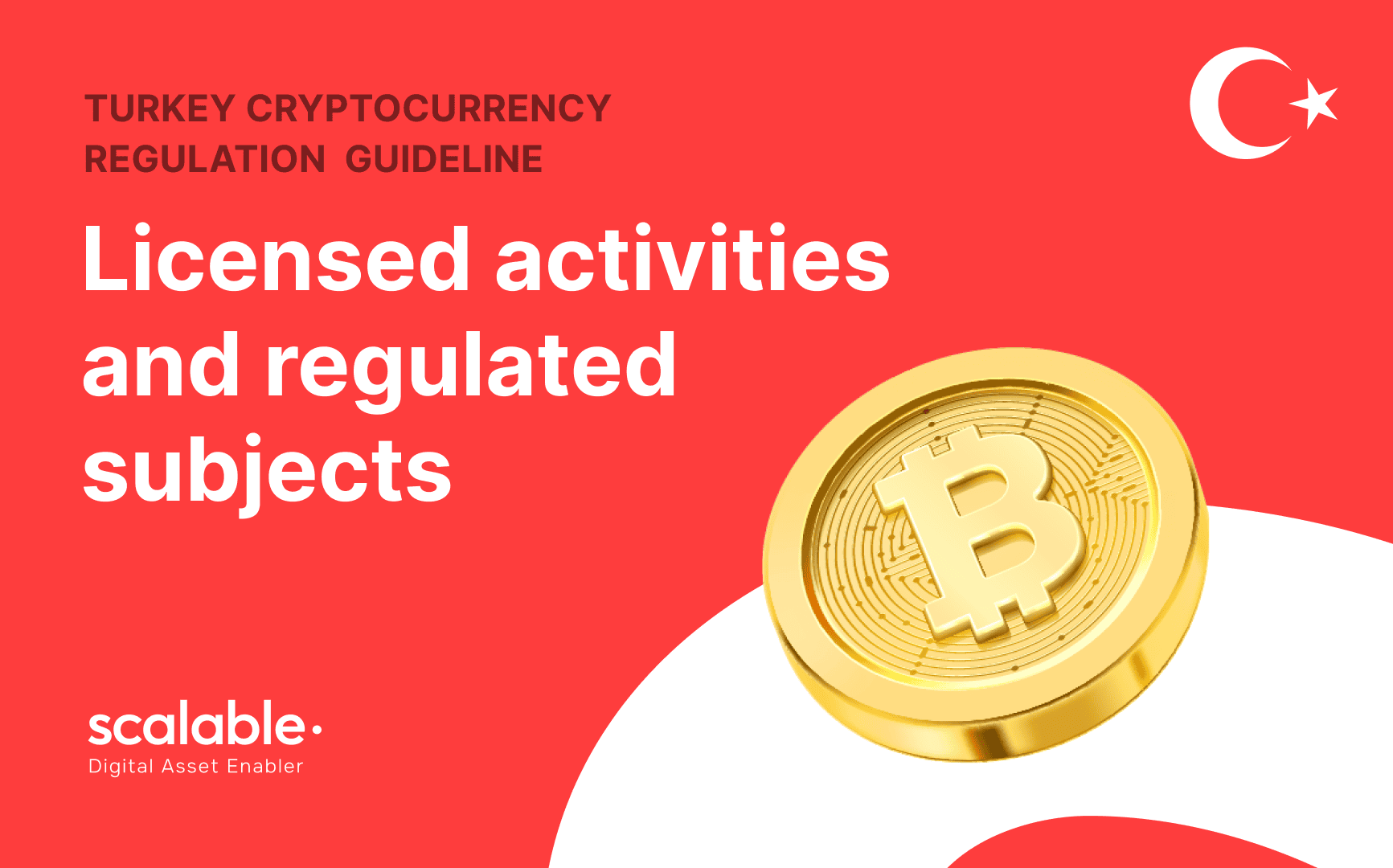Turkey Cryptocurrency Regulation Guideline: Part I

On March 13, 2025, the Capital Markets Board of Turkey introduced new regulation for cryptocurrency service providers.
The new regulation covers such topics as the list of licensed crypto activities, scope of banned activities with cryptocurrency, conditions required for starting operations, capital and liquidity requirements, requirements for the general management and other staff, requirements for private key storage, listing principles and others.
Starting from this newsletter, we will start covering the key hurdles and objects influenced by the introduced regulations. Subscribe to understand new rules in details.
Licensed activities and regulated subjects
Crypto asset service providers may obtain a license for providing the following services:
- Receiving and executing orders regarding crypto assets, their exchange, transfer of crypto assets and the custody services required for these.
- Intermediating the initial sale or distribution of crypto assets.
- Crypto Custody services
- Investment consultancy services for crypto assets.
The Capital Markets Board may add other regulated crypto activities to list of regulated activities.
Main regulated subjects:
- Platforms – organisations that receive customer orders, match them or execute as a counterparty and conduct exchange, initial sale or distribution, transfer, storage required by these and one or more of other transactions that can be determined.
- Depository/Custody institutions – institutions that provide cryptocurrency custody services. These services may be provided directly to end-customers or through the Platforms.
Custody services and Platform services shall be provided as separate services to the customer and by separate operating teams.
Special subjects - Banks
Custody services can be provided by banks authorized to provide crypto custody services upon receiving an approval by the Turkish Banking Regulation and Supervision Agency (BDDK) or other institutions authorized by the Capital Markets Board to provide crypto asset custody services.(B2 – art. 25 (1)
Other activities that can be provided by the Crypto service providers but do not require a special authorization:
Purchase-sale, initial sale or distribution, exchange, transfer and storage NFTs
Providing financial analysis and general advice regarding crypto assets.
P2P (Peer-to-Peer) exchage platforms are exempt from licensing but shall comply with KYC/KYB rules (B2 – art. 9 (3)
Banned activities
The new regulation sets a specific list of restricted activities for crypto asset service providers.
Ban on targeting Turkish residents from abroad without a local license
Turkish license requirement applies whenever a foreign organization:
- Starts business in Türkiye;
- Hosts a website in Turkish language; or
- Engages in promotional and marketing activities through and/or directly with Turkish residents regarding crypto services[1].
Ban on leverage and derivative trading
Crypto assets listed on the platforms cannot be bought and sold with leverage, cannot be subject to derivative instrument contracts and margin trading, short selling and lending transactions[2].
Listing of anonym tokens
Platforms shall not allow transfers by hiding wallet addresses[3].
No Cash Transactions
Customer cash cannot be received by the platforms in person, cannot be delivered to the customer in person and cannot be stored in any way on the platforms.
Money transfers through the platforms can only be made through customers’ own bank accounts. Money cannot be accepted by the platforms other than electronic transfers made through banks[4].
Numbers in brackets refer to the following document:
Kripto Varlik Hizmet Sağlayicilarin Çalişma Usul Ve Esaslari Ile Sermaye Yeterliliği Hakkinda Tebliğ (Iii-35/B.2)
[1] B2 - art. 9
[2] B2 – art. 14
[3] B2 - art 21 (1) (d)
[4] B2 – art. 51 (1), (3)
In the next chapters we will cover conditions required for starting the operations. To receive a complete guide with the detailed application process, due diligence requirements, limits for platforms and custodians and many more, stay tuned - you receive a notification, once the complete guide become available for public usage.
